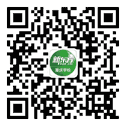托福词汇之那些源自中国的英文单词_新托福听力试题
2015-11-06 12:43
来源:大耳朵英语
作者:
English words from Chinese words are often denoted as being 'loanwords.' Aloanword is one that does not share a literal translation of the word. Ratherthe word is based on the adopted language. Quite simply, the word is borrowedand then co-opted into the new language.
那些来自于中国的词汇通常都被称之为“外来词汇”。这种词不是逐个字翻译过来的,而是基于这种外来语言的。简单来说就是,这个词汇是从别处借过来的,然后用到一种新的语言之中。
1. Gung Ho
工合
Pronounced gōng hé in Mandarin. The literal translation is,"work together."The English use was popularized by Marines fighting in the Pacific in World WarII. The phrase came to mean: "whole heartedly enthusiastic, and loyal, eager,and zealous."
在普通话里的发音为gōnghé,意思是“合作、同心协力”。在英语中广泛被使用是二战时期海军陆战队在太平洋作战时期。这个短语的意思是:“竭诚热情,忠诚、愿望、热心。”
2. Typhoon
台风
Pronounced dàfēng in Mandarin and tai fung in Cantonese. The literaltranslation is "strong wind." Experts say the term, typhon from the Greek andArabic, was strengthened with the Chinese translation.
在普通话中的发音为:dàfēng,广东话的发音为:taifung。直译过来就是:“强风”。有专家表示这个词汇源自于希腊语和阿拉伯语,中文翻译后意思加强了。
3. China
中国
In Chinese, the name is pronounced zhōng guó and literally means "themiddle country." The name was first used by the Italian explorer, MarcoPolo.
在中文里的读音为:zhōng guó,字面意思是“中间的国家。”最初使用这个词汇的人是意大利探险家马可波罗。
4. Silk
丝绸
Pronounced si in Mandarin. The word was first introduced to Western cultureby smugglers who took silk worms and mulberry leaves out of China in 552 CommonEra (CE).
在中文里的读音为:si。这个词语第一次引入到西方是公元552年走私者将蚕、桑叶从中国带到西方的时候。
5. Feng Shui
风水
Literally wind and water. It is the Chinese belief in creating a spiritualbalance in one's home and workplace. The word was first introduced to Westernersin 1757.
字面意思是:风和水。风水是中国人在家和工作场所创造精神平衡的一种信仰。这个词最开始进入西方是1757年。
6. Kowtow
磕头
Literally means "knock head." Pronounced e k'o-t'ou in Chinese. In Chinathe word is a way of bowing and touching the forehead to the ground to indicaterespect. In English the word means to "be servile: to behave in an extremelysubmissive way in order to please somebody in a position of authority."
字面意思就是“扣头”,在中文中的发音为:e k’o-t’ou,意思是:鞠躬,前额碰到地上以示尊重。在英语中的意思是“奴化:为了取悦别人,表现得非常顺从。”
7. Junk新托福听力试题
垃圾
The literal translation in Chinese is "boat." In 1884 the term came to mean"old refuse from boats and ships," and eventually came to mean trash in Westernculture.
中文中的字面意思是“船”。这个词语在1884年表示的是“船上的废旧物”,在西方最终演变成垃圾的意思。
8. Lose Face
丢面子
The literal translation is "humiliation" and is pronounced tu lien inChinese. The word is said to have been introduced to English speakers in1876.
字面的意思是“丢脸、耻辱”,发音为tu lien。据说这个词汇是在1876引进西方的。
9. Shanghai
上海
Shanghai is a Chinese seaport. The word in English came to mean, "to drug aman unconscious and ship him as a sailor." This was the practice of 'recruiting'sailors to the seaport of Shanghai.
上海是中国的一个港口城市。在英语中的意思是“给某人下毒使其失去意识,然后带他去做船员。”这就是上海港口实际中“招募”的船员。
10. Tai Chi
太极
In Chinese, the word is literally translated to the "supreme ultimate." Itis now used in American lingo to describe the martial art of tai chi. Someemphasize the slow movements as a form of exercise, while others practice it asa martial art.
按照中文译过来就是“太极(最高极限)。”这也是现在美国武术馆中描述的太极。一些人将其看做一种慢动作的练习方式,但是另一些人将其当做武术来练。
11. Oolong
乌龙茶
Literally "black dragon." First introduced to the English language in 1852as a dark, black tea.
字面意思是“黑龙。”首次是1852年作为红茶引入的。

新东方重庆学校微信(微信号:xdf_cq)
最新考试资讯、教育新闻,请扫一扫二维码,关注我们的官方微信!
版权及免责声明
①凡本网注明"稿件来源:新东方"的所有文字、图片和音视频稿件,版权均属新东方教育科技集团(含本网和新东方网) 所有,任何媒体、网站或个人未经本网协议授权不得转载、链接、转贴或以其他任何方式复制、发表。已经本网协议授权的媒体、网站,在下载使用时必须注明"稿件来源:新东方",违者本网将依法追究法律责任。
② 本网未注明"稿件来源:新东方"的文/图等稿件均为转载稿,本网转载仅基于传递更多信息之目的,并不意味着赞同转载稿的观点或证实其内容的真实性。如其他媒体、网站或个人从本网下载使用,必须保留本网注明的"稿件来源",并自负版权等法律责任。如擅自篡改为"稿件来源:新东方",本网将依法追究法律责任。
③ 如本网转载稿涉及版权等问题,请作者见稿后在两周内速来电与新东方网联系,电话:010-60908555。